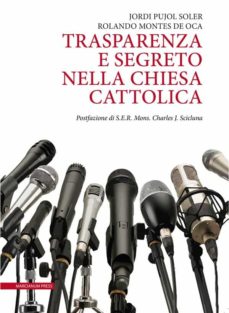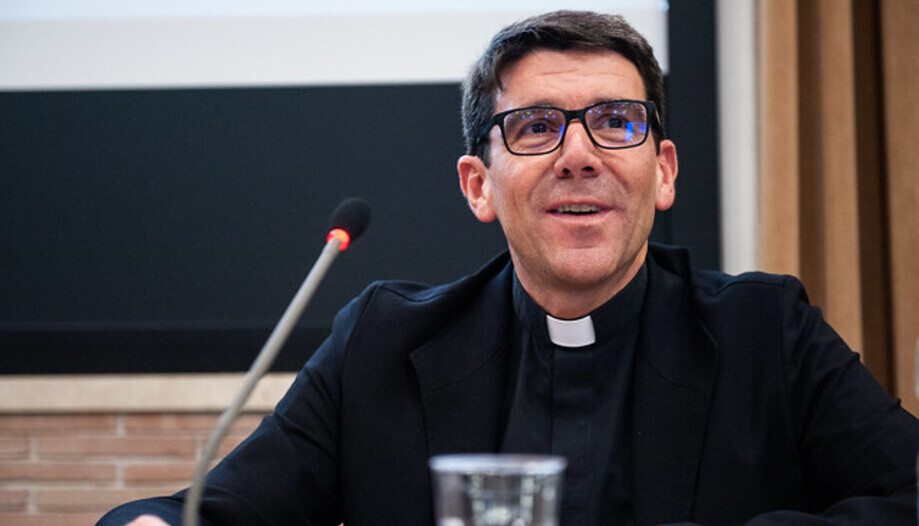Looking at the issue of abuse in the Church in recent years, it is clear that all Popes have had a key moment in which they have become particularly aware of the problem. With Pope Francis it was on his return from his trip to Chile in January 2018. He began to receive victims and then wrote two letters: the Letter to the People of God on pilgrimage in Chile (May 31, 2018), in which he opens the reflection on the "exercise of authority" and "the hygiene of interpersonal relationships" in the Church. Y the Letter to the People of God (20 August 2018), where he puts abuse of power, abuse of conscience and sexual abuse on the same level, using the expression of a "culture of abuse".
"The fact that the Church is hierarchical is not a problem" explains to OMNES the priest Jordi Pujol -Professor of Communication Law and Ethics at the Pontifical University of the Holy Cross in Rome. "The common law of the Church, as well as the particular law of her institutions, with their Statutes, Rules and councils to which superiors must submit, are a natural brake on authoritarianism or personalism. The problem is the neglect of the service dimension that the exercise of authority has," he stresses. In this sense, "it is difficult for abuse of authority to constitute a crime, but the fact that it is not formally relevant from a criminal point of view does not mean that it is legally or morally indifferent," adds Pujol.
Recently, Pujol has published a book together with a priest from the diocese of Camagüey in Cuba, Rolando Montes de Oca, titled: Transparency and secrecy in the Catholic Church (Transparency and Secrecy in the Catholic Church) edited in Italian by Marcianum Pres. In a context marked by the reality of abuse, the authors highlight a set of challenges for the Church, such as gaining openness while safeguarding confidentiality, fighting against cover-ups and protecting the presumption of innocence.

"It's interesting the lesson we've learned since the McCarrick case. It seemed that if one obtained sexual favors with adults (in that case seminarians) nothing happened. Now it doesn't: the category has been included. vulnerable adult and this also affects the laity who exercise authority functions in the Church 一reflects the professor一. One of the challenges posed by the pope in those 2018 letters is the. culture of careThe Church is called to foster, as Jordi Bertomeu says, healthy asymmetrical ecclesial relationships, which generate freedom and inner peace".
Is the subject of abuse often discussed from an emotional point of view, pointing the finger at the accused and often forgetting about solutions?
On the one hand, the institution often feels "publicly singled out", besieged in the face of these cases that are denounced in the public arena. The reaction of the leaders is usually defensive, in the face of what is considered a threat or an attack. On the other hand, speaking in public about your mistakes makes you vulnerable and attackable as an institution. It is a painful humiliation to go through. It is an open wound, a process that should not be closed falsely. The path of fluid communication and accountability that we propose in the book seems to us to be the right path for an institution like the Church, in which millions of people place their trust.
The reaction of leaders is usually defensive, in the face of what is considered a threat or an attack. On the other hand, speaking publicly about your mistakes makes you vulnerable and attackable as an institution.
Jordi Pujol. Professor of Communications Ethics
How should the intervention be carried out?
As Pope Francis has established, dioceses and Church institutions must open channels of denunciation and adequate listening, they must create welcoming teams that facilitate the discovery of abusive behavior and establish protocols for action. Active and open listening to the victims will lead to assuming the corresponding juridical and moral responsibilities.
Bishops and superiors are called to assume a proactive attitude of vigilance and accountability. After the latest reforms, the leadership of the Church is not only accountable to God, but is also bound by Canon Law. No authority is above the law. Negligence, cover-up and lack of accountability of those who govern are punishable. I think there is no turning back from this more transparent and accountable form of government.
What is clear from the study you have conducted?
Our book stresses that it is necessary to continue advancing in this cultural change that determines a style of governing the Church. We all agree on the principles: we want a Church that is open, that listens, that does not see victims as a threat or a problem, that values the laity and women, that is not elitist but co-responsible....
In fact, these principles, which contribute to a Church more inclined to give information, to be accountable also to the faithful, etc., are all included in the Magisterium, but sometimes they remain there. Some of them have become legal obligations, but laws alone do not really change relationships in the Church.
The book talks a lot about establishing communication processes with our publics (external and internal), of shared responsibility and not only "upwards", since leaders must also be accountable "downwards", to their people and society in general.
Do you believe that the Church authorities are well disposed to welcome these changes?
We cannot be naïve, in the Church there is a certain tendency to immobilism, and there is undoubtedly resistance. But at the same time, new processes are being set in motion: the Church is learning not to see victims as a threat, as a problem. In this sense, Church leaders are called upon to lose the fear to listen to the testimonies and experiences of the victims. This is the only way to open our eyes and take the necessary healing and preventive measures.
A pyramidal governance structure probably doesn't help, but you said that "being hierarchical" is not the main hindrance. Is the problem the way authority is exercised?
That is how it is. In the Church we say that whoever understands "authority as power" has the wrong attitude, because "authority in the Church is service". But I would say that not only that. Church leaders have to demonstrate - besides eagerness to serve - true love for the Church. One way to overcome abuse is to remind those who assume these positions of leadership that their authority is rooted in Christ, and must be nourished by union with Christ.
Bishops and superiors are not mere managers or politicians. It is not easy, because we demand everything from them: that they have juridical knowledge to act as judges in their circumscription, that they have competence in economic aspects to administer goods, that they have leadership and government skills, that they are empathetic and available pastors, that they are doctrinally prepared, that they preach well and are saints... almost nothing!
In the Church we say that those who understand "authority as power" have the wrong attitude, because "authority in the Church is service".
Jordi Pujol. Professor of Communications Ethics
Recently, Msgr. Scicluna, who has been closely following the issue of abuse from the Vatican since the beginning, spoke of accompanying not only the victims but also the accused, and even the condemned. How can these aspects be integrated?
It is not easy because when you bring up the issue of the presumption of innocence it may seem that you are taking sides. Benedict XVI pointed out the strategy very clearly as early as 2010, first in the letter to Catholics in Ireland and, shortly afterwards, during the trip to the United Kingdom, insisting on three points: that the victims be put first; secondly, attention to the guilty, who must be guaranteed a just punishment and kept away from contact with young people; and thirdly, prevention and selection of candidates for the priesthood, because the faith must also be safeguarded.
Is it possible to put victims first and defend the presumption of innocence?
It should be. The presumption of innocence is a principle of canon law which, in the penal sphere, has been formalized in Can. 1321 of the New Book VI of the Code of Canon Law. Another thing is its application in factFor example, the way in which precautionary measures are communicated and applied to a priest who is denounced as a potential abuser (leaving the parish, ceasing to officiate in public or to dress as a priest, etc.).
Michael Mazza explained for Omnes some of these details. Some priests have been informed of these measures by WhatsApp, and that is very serious. We are interested in justice and truth, but also in the care of all the people involved during these often painful and lengthy processes.
Finally, what do you think about the dance of reports on abuse in the Church that have been published in different countries? And about the pressures that the Church is receiving in Spain and Italy in this regard?
External audit and independent commissions of inquiry are useful tools to ensure that a number of external eyes tell you truths that are sometimes hard to recognize, as long as they are experts.
In the Church, we have found it difficult to allow others to tell us what they see. The policy that "family secrets are not aired because they would not be understood", or that "dirty laundry is washed at home" has been frequent, not so much out of malice as lack of openness.
Honest journalism, as in the case of Spotlight helped the Church to recognize a scandalous reality that it was reluctant to face. However, not all commissions of inquiry, not all of them, nor all of them reports no equipment spotlight are equally competent and well-intentioned. The reports of the Royal Commission in Australia or the John Jay Report in the U.S. are two good examples of thorough and honest investigations. The Church heeded more than 90% of the recommendations of the Royal Commission Australian.
Can the same be said of the latest published reports?
Not really, I consider that the French and German reports are not at the same level. It would take too long to explain. The power we give to these independent commissions to talk about us is enormous and, in that sense, the value of "independence" is an important factor, but it is not the only one, nor should it be given at any price. This independence has to be accompanied by undisputed competence, otherwise external audits are meaningless. One of the problems that can occur in Spain or Italy is that being always under the pressure of the media spotlight can influence the composition of the teams, or the investigation, and it is not the right thing to do. The investigation of truth and justice requires serenity and time, not media spectacle.









